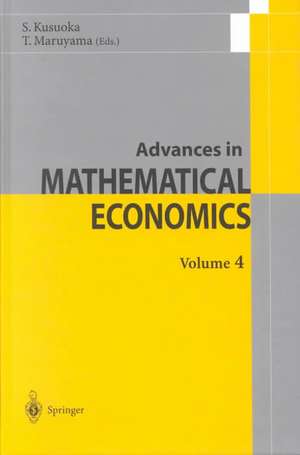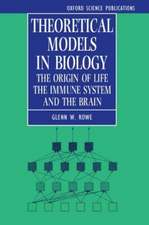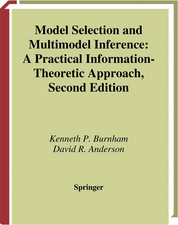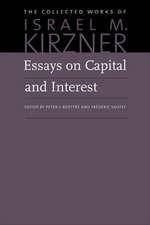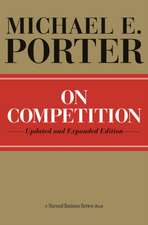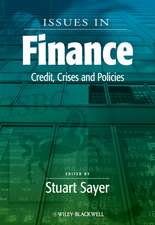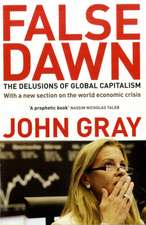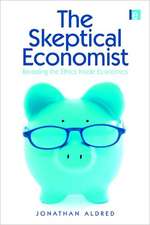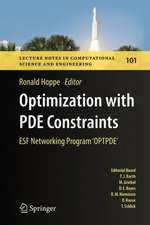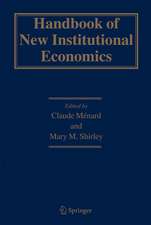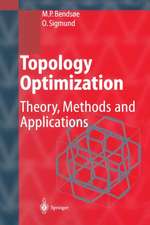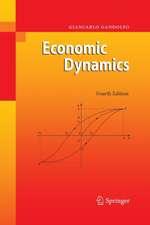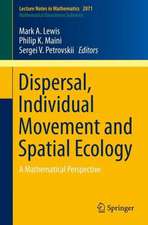Advances in Mathematical Economics 4: Advances in Mathematical Economics, cartea 4
en Limba Engleză Hardback – feb 2002
| Toate formatele și edițiile | Preț | Express |
|---|---|---|
| Paperback (1) | 376.04 lei 43-57 zile | |
| Springer – 21 oct 2010 | 376.04 lei 43-57 zile | |
| Hardback (1) | 383.12 lei 43-57 zile | |
| Springer – feb 2002 | 383.12 lei 43-57 zile |
Din seria Advances in Mathematical Economics
-
 Preț: 392.60 lei
Preț: 392.60 lei - 15%
 Preț: 632.55 lei
Preț: 632.55 lei - 18%
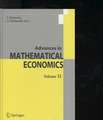 Preț: 946.41 lei
Preț: 946.41 lei - 18%
 Preț: 945.79 lei
Preț: 945.79 lei - 15%
 Preț: 636.80 lei
Preț: 636.80 lei - 15%
 Preț: 688.44 lei
Preț: 688.44 lei - 15%
 Preț: 683.73 lei
Preț: 683.73 lei -
 Preț: 386.61 lei
Preț: 386.61 lei -
 Preț: 366.69 lei
Preț: 366.69 lei -
 Preț: 386.99 lei
Preț: 386.99 lei -
 Preț: 386.61 lei
Preț: 386.61 lei - 15%
 Preț: 634.32 lei
Preț: 634.32 lei - 15%
 Preț: 529.60 lei
Preț: 529.60 lei - 15%
 Preț: 632.55 lei
Preț: 632.55 lei - 15%
 Preț: 639.73 lei
Preț: 639.73 lei - 18%
 Preț: 960.30 lei
Preț: 960.30 lei - 15%
 Preț: 638.89 lei
Preț: 638.89 lei
Preț: 383.12 lei
Nou
Puncte Express: 575
Preț estimativ în valută:
73.33€ • 79.68$ • 61.64£
73.33€ • 79.68$ • 61.64£
Carte tipărită la comandă
Livrare economică 21 aprilie-05 mai
Preluare comenzi: 021 569.72.76
Specificații
ISBN-13: 9784431703204
ISBN-10: 4431703209
Pagini: 90
Ilustrații: VI, 76 p.
Dimensiuni: 155 x 235 x 11 mm
Greutate: 0.3 kg
Ediția:2002
Editura: Springer
Colecția Springer
Seria Advances in Mathematical Economics
Locul publicării:Tokyo, Japan
ISBN-10: 4431703209
Pagini: 90
Ilustrații: VI, 76 p.
Dimensiuni: 155 x 235 x 11 mm
Greutate: 0.3 kg
Ediția:2002
Editura: Springer
Colecția Springer
Seria Advances in Mathematical Economics
Locul publicării:Tokyo, Japan
Public țintă
ResearchCuprins
A.D. Ioffe, A.M. Rubinov: Abstract convexity and nonsmooth analysis: Global aspects.- H. Ozaki: Dynamic programming with upper semi-continuous stochastic aggregator.- H. Tateishi: On the existence of equilibria of equicontinuous games with incomplete information.- N.C. Yannelis: A Bayesian equilibrium existence theorem.- Subject.- Index.
Caracteristici
It is planned to publish this series once a year under the auspices of the Research Center of Mathematical Economics (Tokyo) It is designed to bring together those mathematicians who are seriously interested in obtaining new challenging stimuli from economic theories and those economists who are seeking effective mathematical tools for their research Authors are asked to develop their original results as fully as possible and also to give a clear-cut expository overview of the problem under discussion Consequently, this series will also invite articles which might be considered too long for publication in journals
